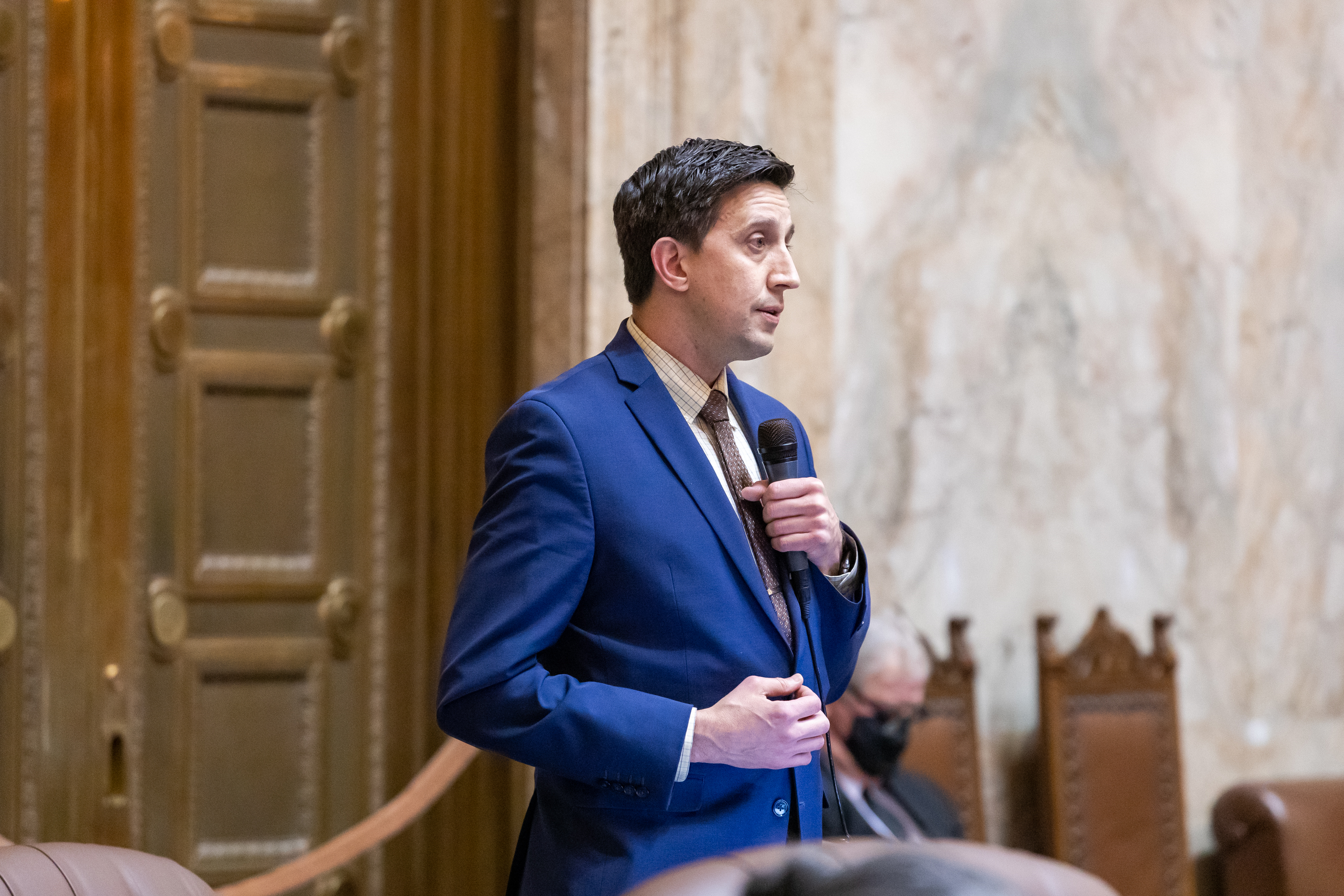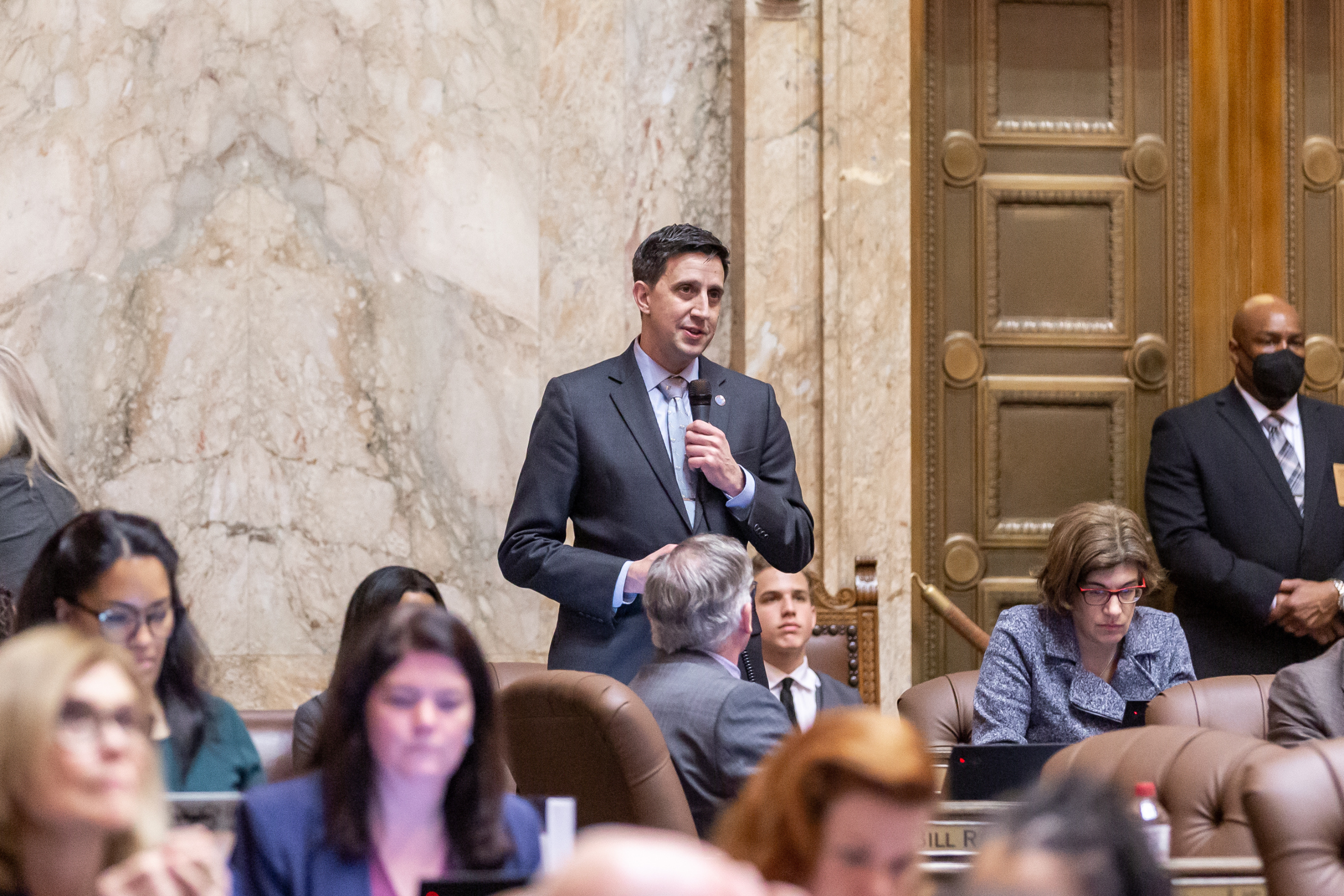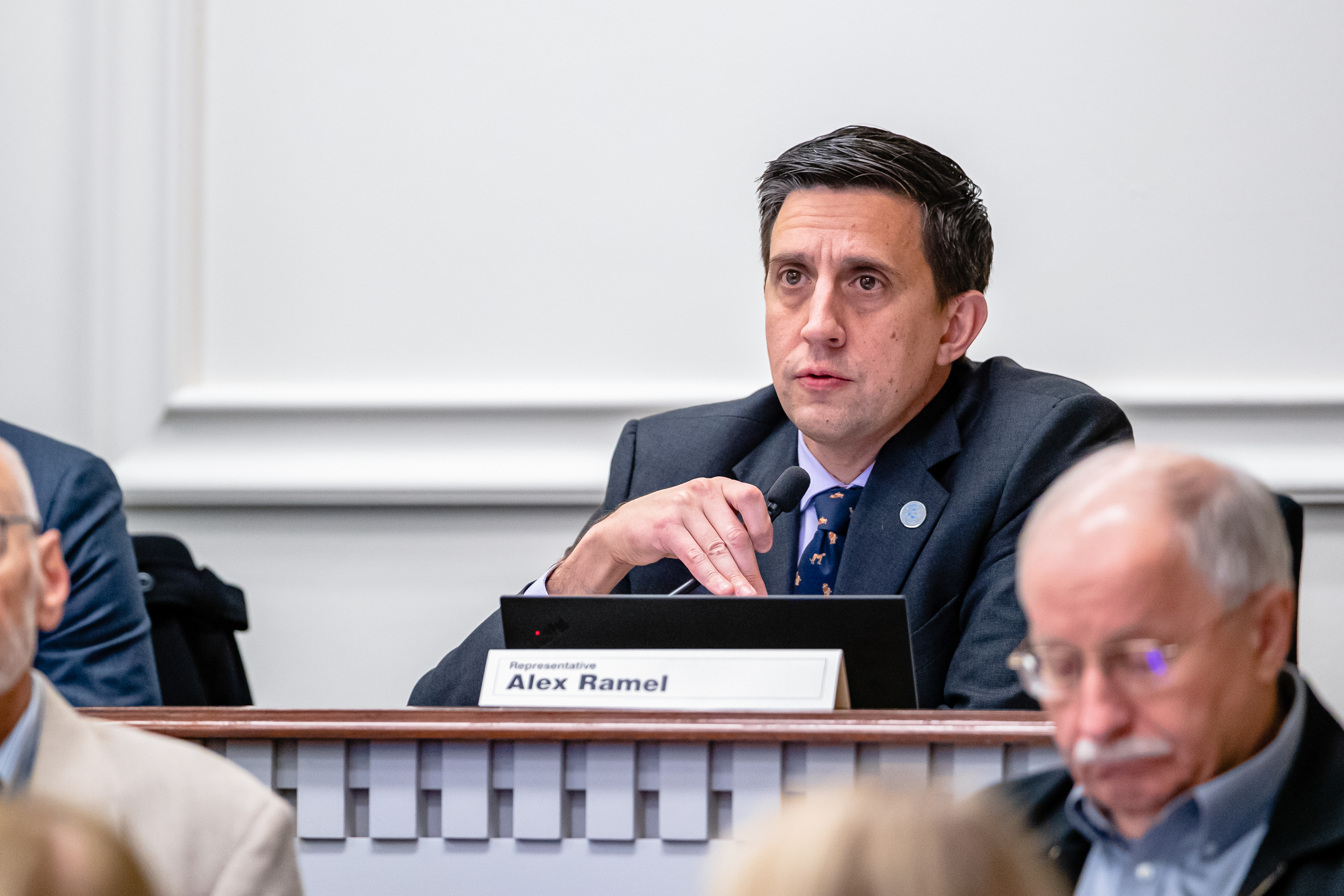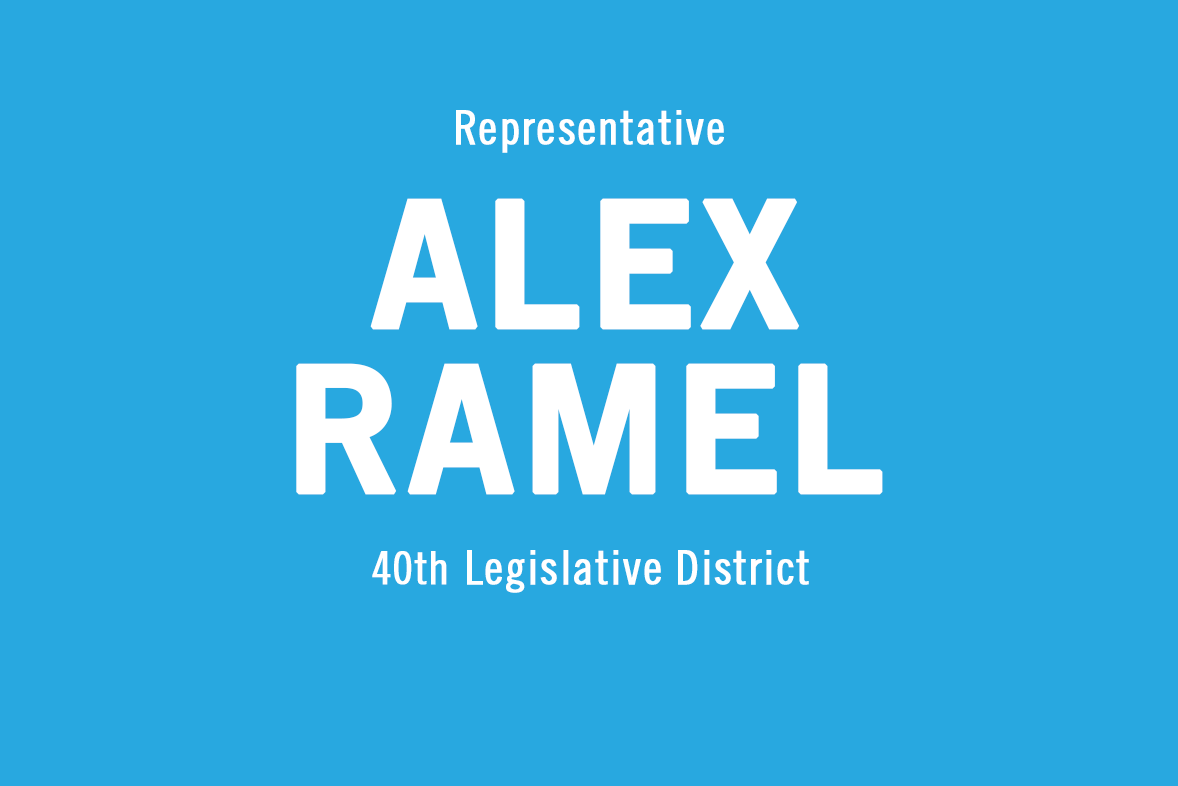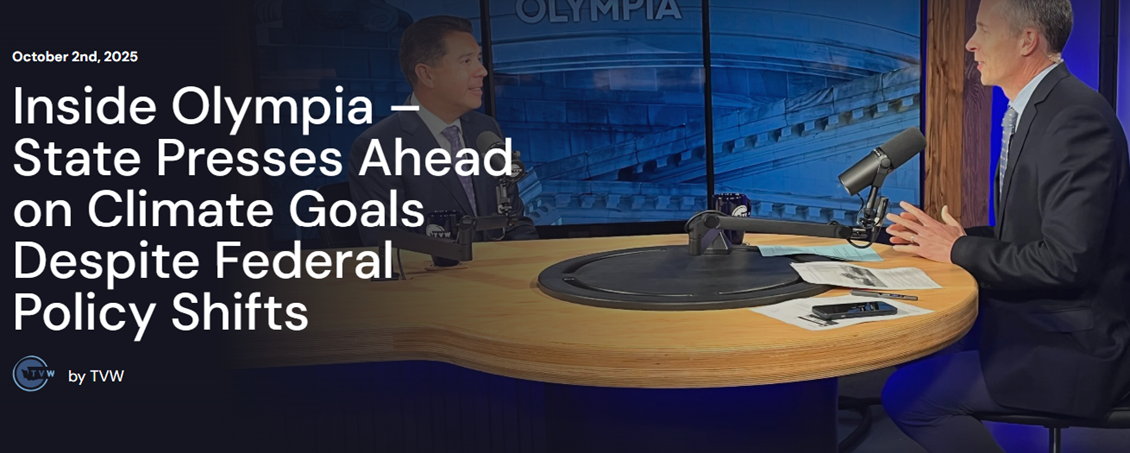
Dear friends and neighbors,
As we move into autumn, the signs of a changing climate are all around us. This summer, Bellingham faced one of its longest and hottest stretches since the 2021 heat dome. These extreme temperatures aren’t isolated events, they’re part of a broader pattern that includes not just heat waves, but also heavier rainfall, flooding, landslides, and infrastructure damage – as well as increasingly cold winters that strain our energy systems and household budgets.
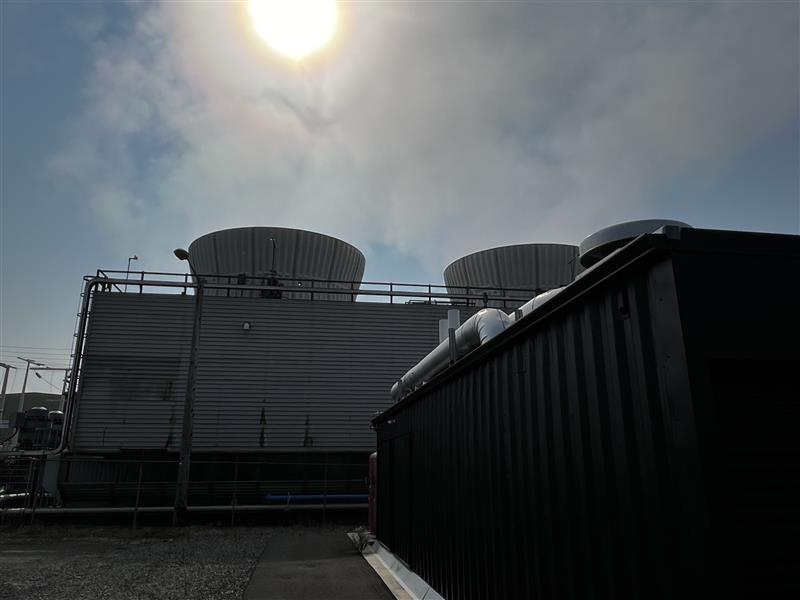
Climate change is no longer a distant threat. It’s a daily reality reshaping our communities, our environment, and our economy. That’s why our work to decarbonize, build resilience, and safeguard the health of Washingtonians has never been more urgent.
Investments In Our Community
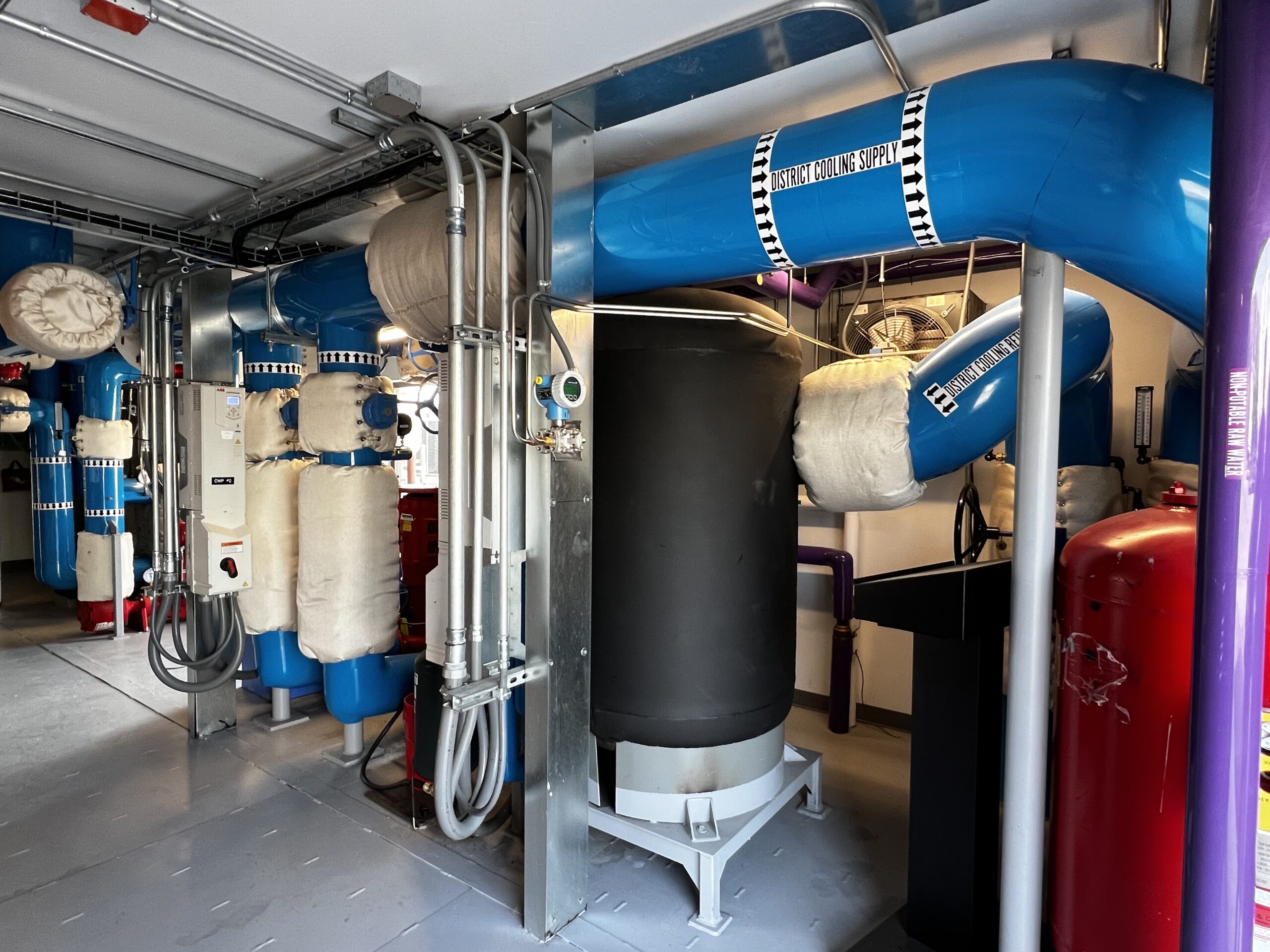
Over the past few months, I’ve had the chance to visit communities across our district and see firsthand how state policy is translating into local progress – from touring the Low Carbon Waterfront District Energy System in Bellingham with Jeff Giffin from Corix, to exploring Western Washington University’s heating conversion and rooftop solar projects.
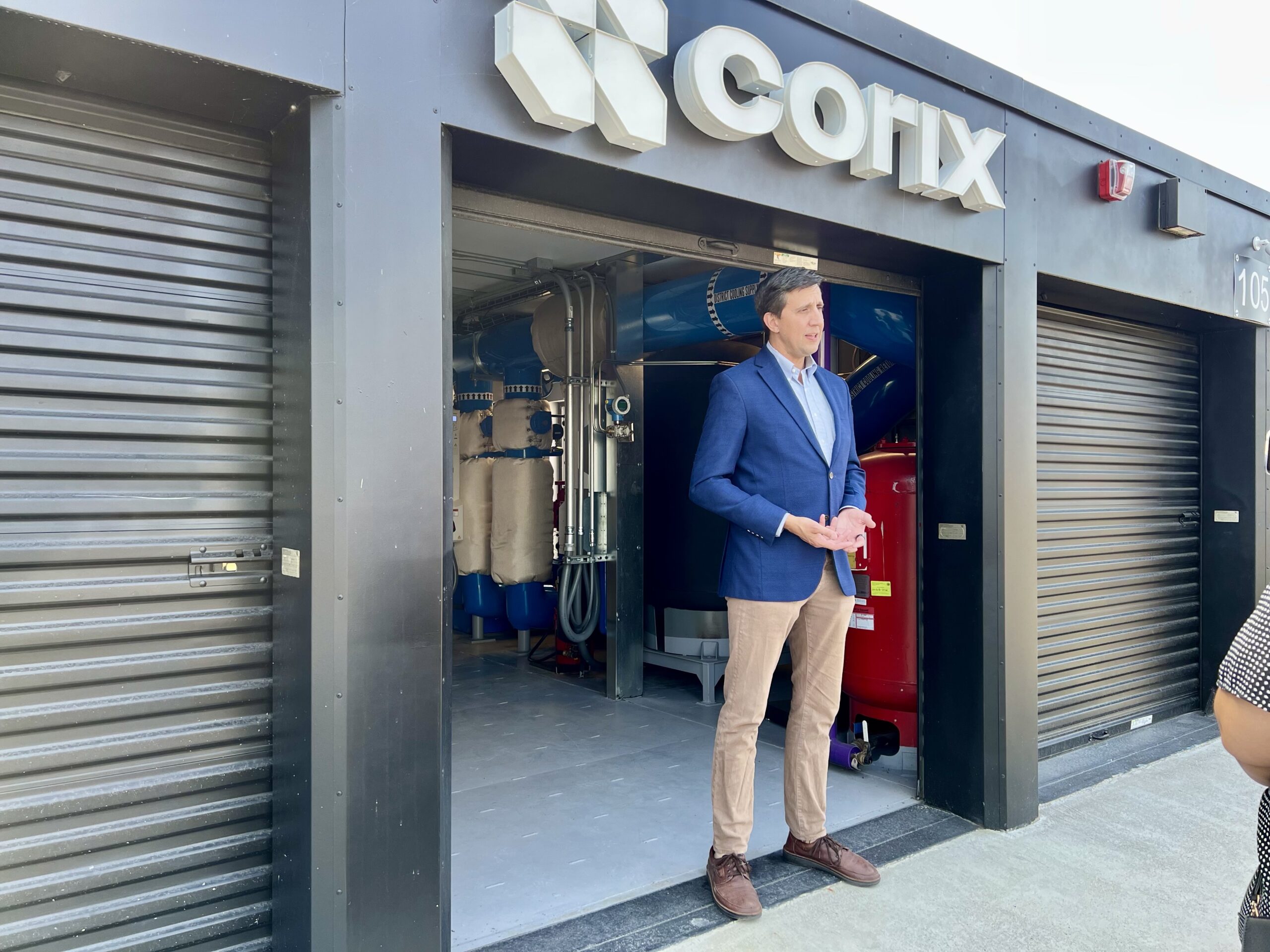
These visits were especially meaningful given the significant state investments that are helping drive this transition. The Port of Anacortes T-Dock reconfiguration received $1 million, with an additional $1.5 million for electrification, supporting cleaner maritime operations. In Bellingham, I helped to secure $100,000 in capital funding for the Low Carbon Waterfront District Energy System, while Western Washington University’s Heating Conversion Project received $10 million last biennium and $41 million in the 2025–27 capital budget.
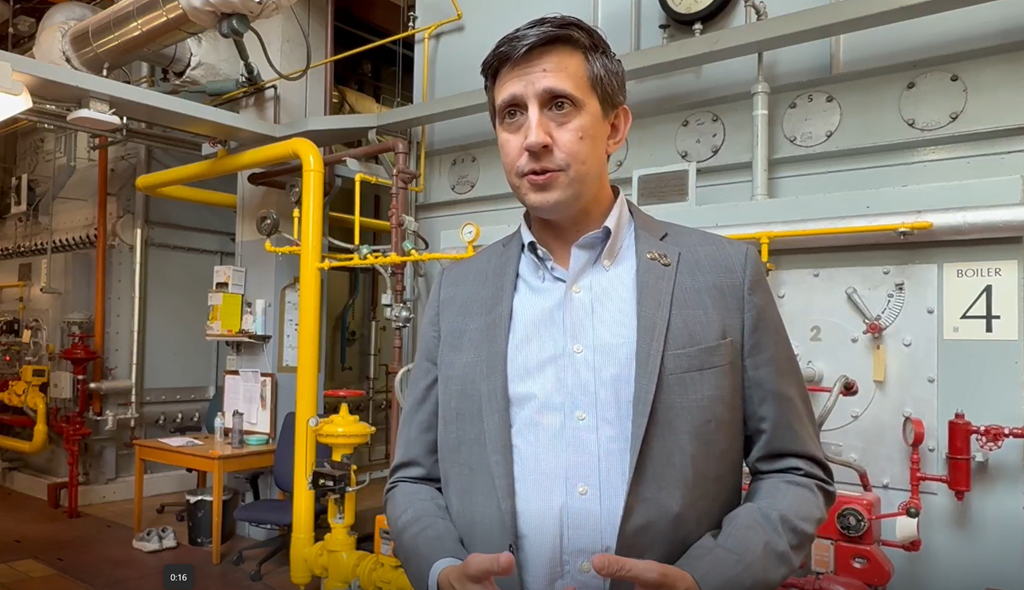
Together, this represents one of the largest clean energy infrastructure commitments in our region. These projects exemplify how local innovation, supported by state investment, is paving the way toward a low-carbon future. Furthermore, each of these projects is creating great jobs in the local construction industry and workforce training opportunities.
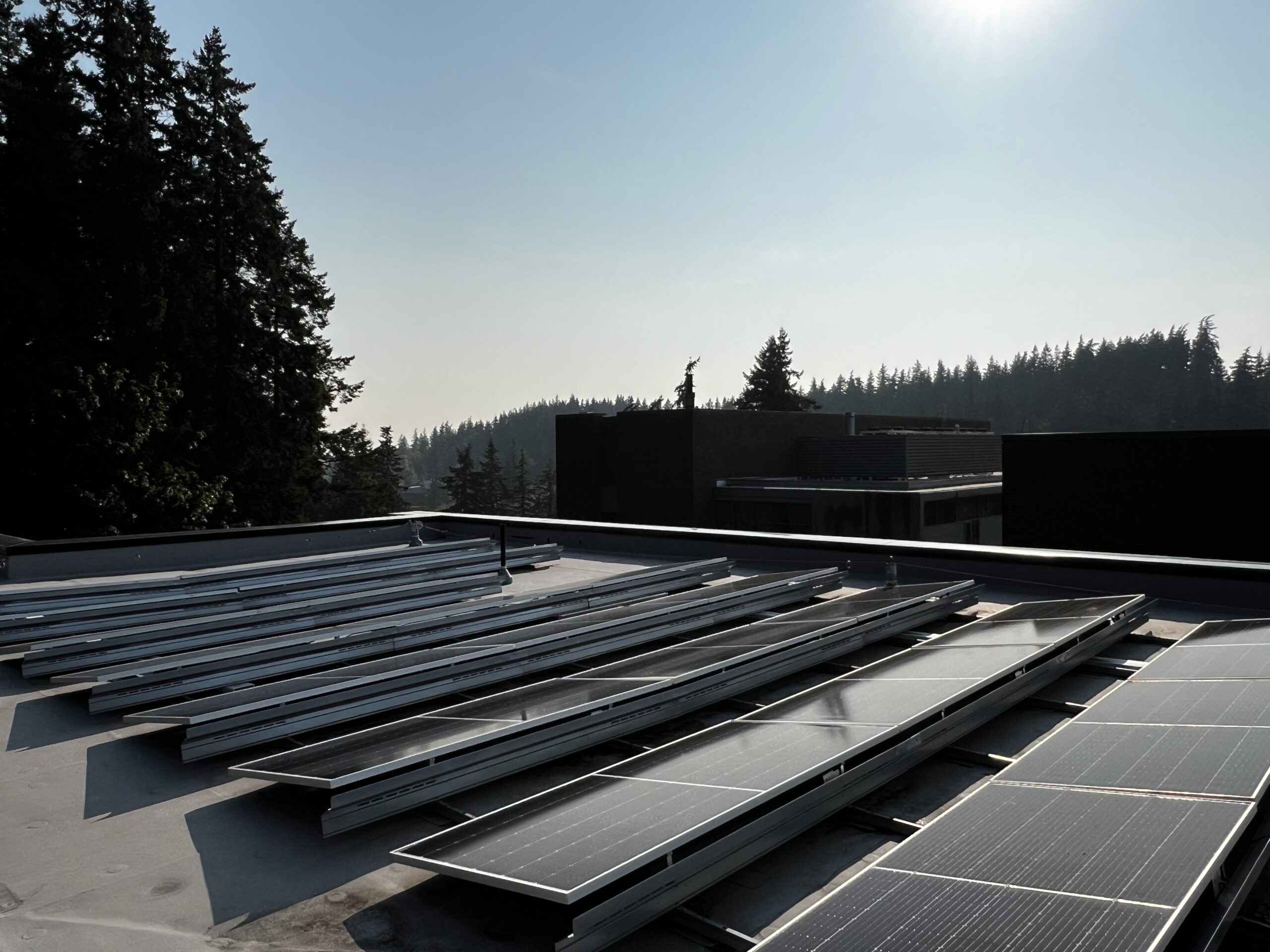
2025 Environment & Energy Committee Update
This year, we made historic progress to reduce greenhouse gas emissions, modernize our recycling systems, and accelerate the transition to clean energy. The Climate Commitment Act (CCA) continues to be the foundation of our state’s climate policy, driving investments in clean transportation, air quality improvements, and energy efficiency projects that directly benefit communities across Washington. While some funding was temporarily redirected to address short-term budget challenges, I remain committed to ensuring the CCA remains a cornerstone of our state’s long-term decarbonization and environmental preservation strategy.
We passed landmark legislation to make our waste systems smarter, our air cleaner, and our energy sources greener. A few highlights include:
- Improving Solid Waste Management (HB 1150/SB 5284) – This transformative reform will revolutionize recycling across the state by making it more efficient, transparent, and equitable. This bill will move the responsibility for funding our recycling system away from consumers and onto the companies that make and distribute packaging materials.
- Clean Fuels Program Improvements (HB 1409) – Our biggest climate win this session, this law strengthens Washington’s clean fuels standards and aligns us with our West Coast neighbors. By cutting transportation emissions, we’re improving air quality and protecting communities living near major roadways.
- Reducing Super Pollutants (HB 1462) – By phasing out hydrofluorocarbons (HFCs), this bill tackles some of the most potent greenhouse gases and improves air quality for communities most affected by pollution.
- Promoting Low-Carbon Thermal Energy (HB 1514) – I’m proud to have sponsored this bill to support new district heating systems that deliver efficient, low-carbon energy to neighborhoods. These systems reduce emissions and help make heating more affordable for families.
- Enhancing Building Performance Standards (HB 1543) – This legislation expands our clean building programs, making it easier for building owners to adopt energy efficiency measures that reduce costs, lower emissions, and improve air quality.
- Addressing PFAS in Biosolids (SB 5033) – By requiring testing for “forever chemicals” in biosolids, this bill helps protect our soil, water, and communities, especially those on the frontlines of contamination.
These laws work together to strengthen our state’s environmental leadership, build clean energy infrastructure, and ensure our policies deliver benefits equitably across all communities. We’ve also continued to protect and invest in our natural resources, with new revenue from the Discover Pass and updated hunting and fishing licenses supporting outdoor recreation, wildlife preservation, and critical programs like wildfire prevention and invasive species management. These investments keep Washington’s lands and waters healthy for future generations.
Federal Impacts
However, our progress is being challenged by actions at the federal level. Recently, the Trump Administration announced the termination of $1.1 billion in federal energy grants for Washington, including $1 billion for the Pacific Northwest Hydrogen Hub – a critical clean energy project that would have created over 10,000 jobs, built out a clean hydrogen economy, and accelerated decarbonization in hard-to-abate industries. These cuts threaten to derail essential projects across our state – from solar and zero-emission vehicle initiatives to university research and undermine the local economies and workers who stand to benefit most.
Even in the face of these setbacks, Washington will continue to lead. We will keep advancing environmental policies that are good for our communities and our economy. These are policies that create local jobs, strengthen infrastructure, improve air and water quality, and address the critical intersections of community health, economic development, and climate action. Our state’s future depends on our ability to meet these challenges with innovation, collaboration, and a commitment to justice.
For more information, I highly recommend watching TVW’s Inside Olympia coverage of this issue where Casey Sixhiller, Director of the Department of Ecology, discusses how various federal actions impact Washington’s ability to meet critical climate targets.
Scenic Bikeways Program
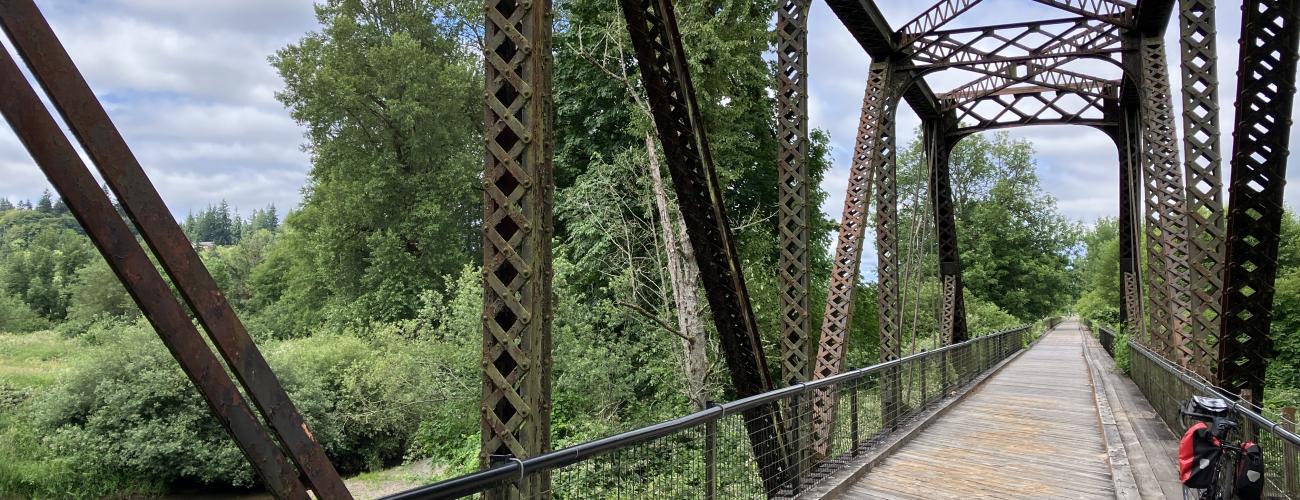
I’m thrilled to share that the Scenic Bikeways Program, which I created through HB 2587, is finally ready to launch. The program, now codified in RCW 79A.05.800, will highlight Washington’s most beautiful cycling routes and encourage sustainable tourism across our state. Starting this month, the first round of route nominations will open for public input. This has been years in the making, and I’m so excited to see it come to life as another way we can enjoy Washington’s natural beauty while reducing our carbon footprint.
Stay In Touch
Every visit I’ve made this interim from Bellingham’s waterfront Lopez Island’s food security center has reinforced how far we’ve come and how much potential we still have. Together, we’re proving that environmental responsibility, economic opportunity, and community well-being go hand in hand. As we move into fall, I’m inspired by the progress we’ve made and energized for the road ahead. Please continue to reach out to me about your priorities for our community.
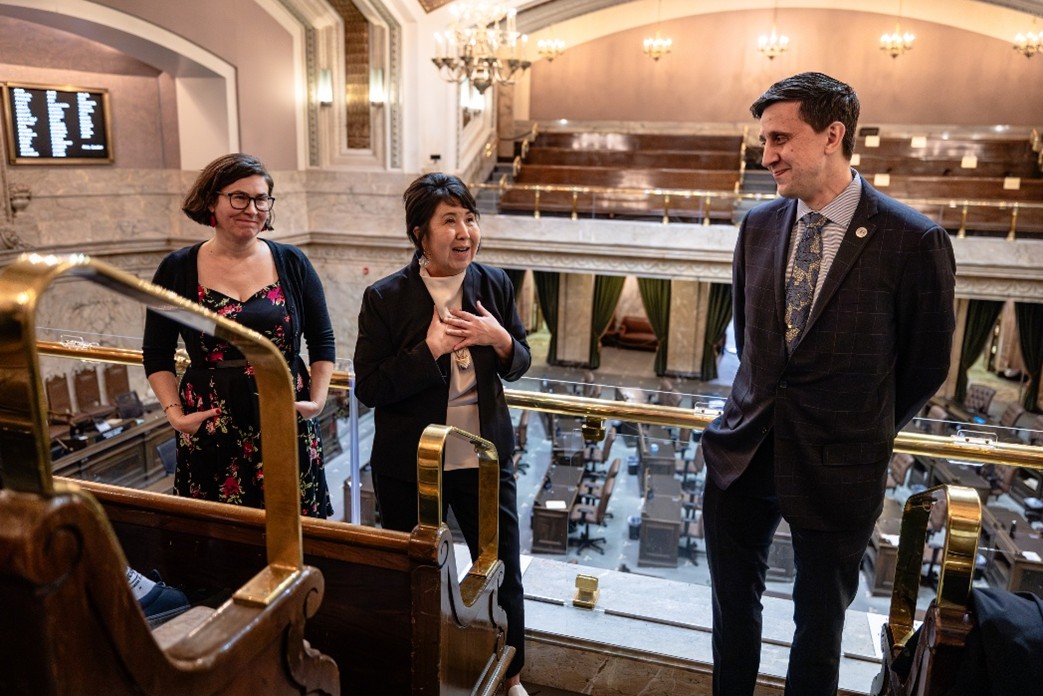
With the 2026 legislative session on the horizon, I look forward to our continued partnership on the shared work of keeping the 40th legislative district a vibrant and outstanding community to be a part of!
In Service,

Rep. Alex Ramel
WA State Representative | 40th Legislative District
House Majority Whip
Pronouns: he/him/his
